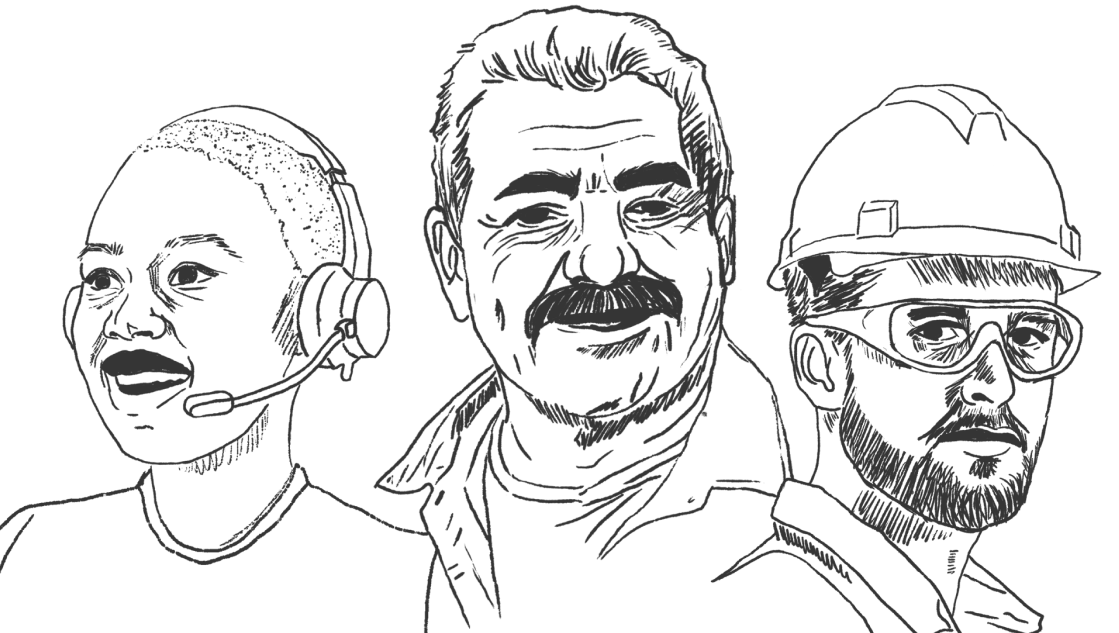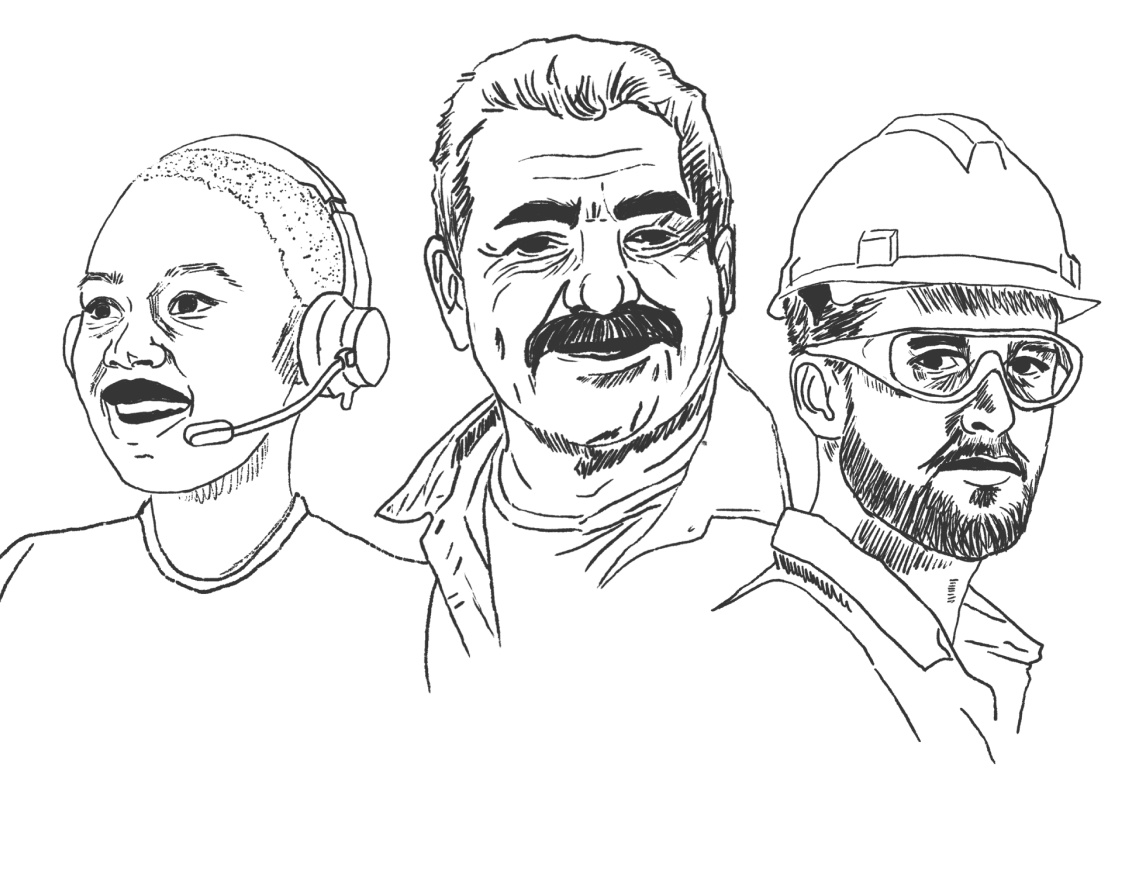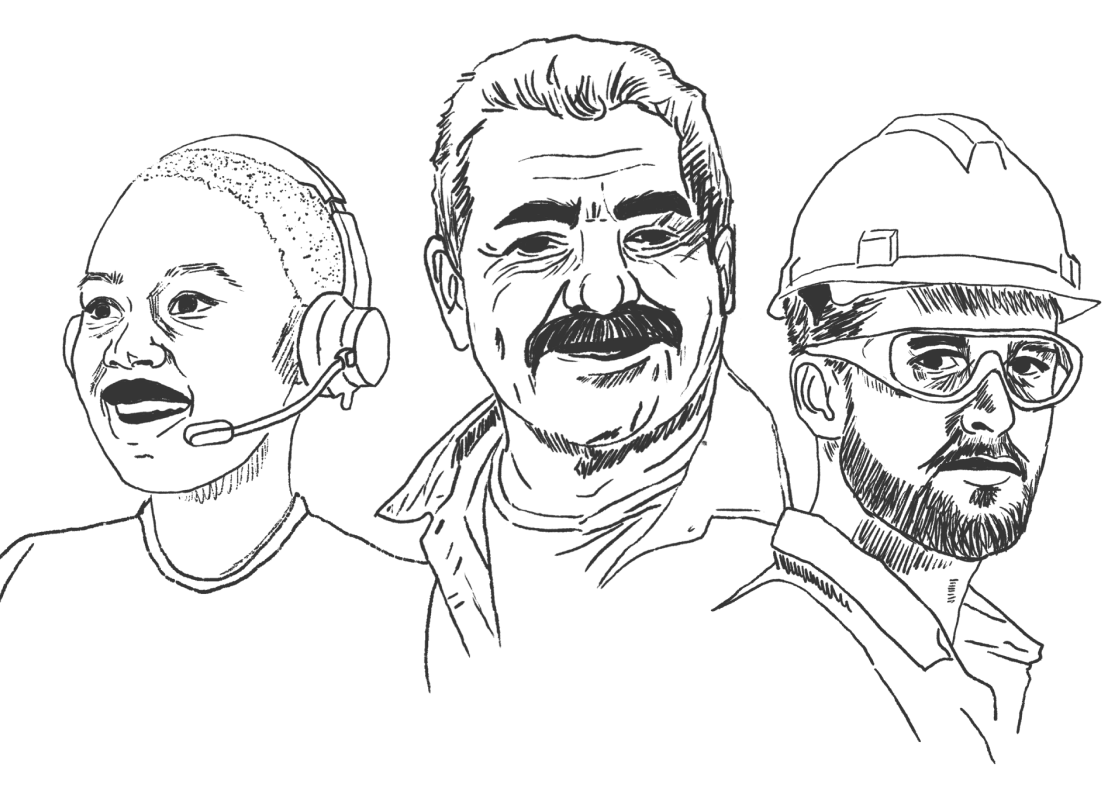

CLASS ACTION
Class actions originate from cases initiated by an individual or a small group of employees who've faced similar legal injustices. These actions are advantageous as they allow for efficient rectification of large-scale wrongs, particularly when the expenses of a solitary lawsuit would surpass the benefits.
EXAMPLES OF CLASS ACTIONS IN EMPLOYMENT LAW:
- WAGE AND HOUR VIOLATIONS: A class action lawsuit may be filed against an employer for widespread wage and hour violations, such as unpaid overtime, failure to provide meal and rest breaks, or misclassification of employees as exempt from overtime pay. In such cases, a group of employees can join forces to seek compensation for these violations collectively.
- DISCRIMINATION: Class actions can be initiated in cases of systemic workplace discrimination. For instance, a group of employees might file a class action against their employer for widespread gender or race-based discrimination in hiring, promotion, or pay practices.
- EMPLOYEE MISCLASSIFICATION: When a company improperly classifies workers as independent contractors rather than employees, it can lead to class action lawsuits seeking the benefits and protections owed to employees. Uber and Lyft have faced such suits related to driver classification.
- ERISA VIOLATIONS: Class actions can be brought under the Employee Retirement Income Security Act (ERISA) for violations related to employee benefit plans. This can include claims against employers who mismanage pension funds or fail to provide required benefits to employees.
- WARN ACT VIOLATIONS: The Worker Adjustment and Retraining Notification (WARN) Act requires employers to give advance notice of certain plant closings and mass layoffs. Employees who do not receive proper notice may file class action lawsuits against their employer for WARN Act violations.
- AGE DISCRIMINATION: In cases where multiple older workers believe they were laid off or denied job opportunities due to their age, they can bring a class action lawsuit under the Age Discrimination in Employment Act (ADEA).
- SEXUAL HARASSMENT: In situations where a company fails to address or prevent sexual harassment, multiple victims of harassment can join together to file a class action suit against the employer.
These are just a few examples of the many types of employment-related class action lawsuits that have been filed in the past. Class actions often arise when a significant number of employees have been affected by similar workplace violations or discriminatory practices. A single employee can step forward as the “lead plaintiff” or “representative plaintiff”, launching the case for potentially hundreds or thousands of peers. The court eventually determines whether to “certify” the collective. Often, “lead” plaintiffs are granted enhanced damages as recognition for defending the rights of the group.
Under California's Labor Code Private Attorneys General Act (PAGA), “representative actions” are permitted. These resemble class actions, challenging employers violating certain Labor Code stipulations. A specific notice to the California Labor and Workforce Development Agency (LWDA) and the concerned company is essential before initiating a PAGA action.
EXAMPLES OF NON-EMPLOYMENT RELATED CLASS ACTIONS
- PRODUCT LIABILITY: Consumers may file class action lawsuits against manufacturers or companies if a product is found to be defective, causing harm or financial loss to numerous individuals. This could include cases involving faulty automobiles, dangerous drugs, or defective consumer goods.
- CONSUMER FRAUD: When a company engages in deceptive or fraudulent practices that affect a large number of consumers, class action lawsuits can be initiated. These cases may involve false advertising, price-fixing, or unfair business practices.
- ENVIRONMENTAL CONTAMINATION: Communities affected by environmental pollution, hazardous waste, or toxic substances may file class action lawsuits against the responsible parties to seek compensation for health damages or property devaluation.
- SECURITIES FRAUD: Investors who have suffered financial losses due to fraudulent activities by a company or its executives may bring a class action lawsuit to recover their losses. This often involves cases of corporate fraud, insider trading, or misleading financial statements.
- ANTITRUST VIOLATIONS: Class actions can be filed against companies for antitrust violations, such as monopolistic practices, price-fixing, or unfair competition, which harm consumers and other businesses.
- DATA BREACHES: In the event of a data breach exposing sensitive personal information of numerous individuals, class action lawsuits can be brought against the organization responsible for the breach to seek compensation and protect affected individuals' rights.
- PHARMACEUTICAL LITIGATION: When a pharmaceutical company releases a drug that causes harm to patients, class action lawsuits may be filed to address the widespread impact on those who took the medication.
- CIVIL RIGHTS VIOLATIONS: Class action lawsuits can be used to address civil rights violations, such as cases involving police misconduct, discrimination, or violations of constitutional rights, where a group of individuals has been affected.
ADVANTAGES OF CLASS ACTION LAWSUITS
Class action lawsuits offer several distinct advantages for plaintiffs and the legal system as a whole. First and foremost, they provide a powerful mechanism for individuals with similar claims to join forces, creating strength in numbers. This not only levels the playing field against powerful corporations or entities but also helps to conserve judicial resources by consolidating similar cases. Additionally, class
actions promote access to justice, allowing individuals who might not have the means to pursue individual lawsuits to seek redress for wrongs they have suffered. Furthermore, they serve as a deterrent to wrongful conduct by holding wrongdoers accountable on a larger scale. Ultimately, class action lawsuits can be an effective means of achieving justice, compensating victims, and enforcing legal standards across a wide range of legal issues.
CONTACT AN EXPERIENCED CLASS ACTION ATTORNEY
If you or someone you know is facing a legal challenge that may warrant a class action lawsuit, our team at A2X LAW is ready to assist you. Contact us today to discuss your potential case and explore the options available to seek justice and resolution. We are dedicated to providing effective legal representation and are here to support you throughout the process.

CLASS ACTION
Class actions originate from cases initiated by an individual or a small group of employees who've faced similar legal injustices. These actions are advantageous as they allow for efficient rectification of large-scale wrongs, particularly when the expenses of a solitary lawsuit would surpass the benefits.
EXAMPLES OF CLASS ACTIONS IN EMPLOYMENT LAW:
- WAGE AND HOUR VIOLATIONS: A class action lawsuit may be filed against an employer for widespread wage and hour violations, such as unpaid overtime, failure to provide meal and rest breaks, or misclassification of employees as exempt from overtime pay. In such cases, a group of employees can join forces to seek compensation for these violations collectively.
- DISCRIMINATION: Class actions can be initiated in cases of systemic workplace discrimination. For instance, a group of employees might file a class action against their employer for widespread gender or race-based discrimination in hiring, promotion, or pay practices.
- EMPLOYEE MISCLASSIFICATION: When a company improperly classifies workers as independent contractors rather than employees, it can lead to class action lawsuits seeking the benefits and protections owed to employees. Uber and Lyft have faced such suits related to driver classification.
- ERISA VIOLATIONS: Class actions can be brought under the Employee Retirement Income Security Act (ERISA) for violations related to employee benefit plans. This can include claims against employers who mismanage pension funds or fail to provide required benefits to employees.
- WARN ACT VIOLATIONS: The Worker Adjustment and Retraining Notification (WARN) Act requires employers to give advance notice of certain plant closings and mass layoffs. Employees who do not receive proper notice may file class action lawsuits against their employer for WARN Act violations.
- AGE DISCRIMINATION: In cases where multiple older workers believe they were laid off or denied job opportunities due to their age, they can bring a class action lawsuit under the Age Discrimination in Employment Act (ADEA).
- SEXUAL HARASSMENT: In situations where a company fails to address or prevent sexual harassment, multiple victims of harassment can join together to file a class action suit against the employer.
These are just a few examples of the many types of employment-related class action lawsuits that have been filed in the past. Class actions often arise when a significant number of employees have been affected by similar workplace violations or discriminatory practices. A single employee can step forward as the “lead plaintiff” or “representative plaintiff”, launching the case for potentially hundreds or thousands of peers. The court eventually determines whether to “certify” the collective. Often, “lead” plaintiffs are granted enhanced damages as recognition for defending the rights of the group.
Under California's Labor Code Private Attorneys General Act (PAGA), “representative actions” are permitted. These resemble class actions, challenging employers violating certain Labor Code stipulations. A specific notice to the California Labor and Workforce Development Agency (LWDA) and the concerned company is essential before initiating a PAGA action.
EXAMPLES OF NON-EMPLOYMENT RELATED CLASS ACTIONS
- PRODUCT LIABILITY: Consumers may file class action lawsuits against manufacturers or companies if a product is found to be defective, causing harm or financial loss to numerous individuals. This could include cases involving faulty automobiles, dangerous drugs, or defective consumer goods.
- CONSUMER FRAUD: When a company engages in deceptive or fraudulent practices that affect a large number of consumers, class action lawsuits can be initiated. These cases may involve false advertising, price-fixing, or unfair business practices.
- ENVIRONMENTAL CONTAMINATION: Communities affected by environmental pollution, hazardous waste, or toxic substances may file class action lawsuits against the responsible parties to seek compensation for health damages or property devaluation.
- SECURITIES FRAUD: Investors who have suffered financial losses due to fraudulent activities by a company or its executives may bring a class action lawsuit to recover their losses. This often involves cases of corporate fraud, insider trading, or misleading financial statements.
- ANTITRUST VIOLATIONS: Class actions can be filed against companies for antitrust violations, such as monopolistic practices, price-fixing, or unfair competition, which harm consumers and other businesses.
- DATA BREACHES: In the event of a data breach exposing sensitive personal information of numerous individuals, class action lawsuits can be brought against the organization responsible for the breach to seek compensation and protect affected individuals' rights.
- PHARMACEUTICAL LITIGATION: When a pharmaceutical company releases a drug that causes harm to patients, class action lawsuits may be filed to address the widespread impact on those who took the medication.
- CIVIL RIGHTS VIOLATIONS: Class action lawsuits can be used to address civil rights violations, such as cases involving police misconduct, discrimination, or violations of constitutional rights, where a group of individuals has been affected.
ADVANTAGES OF CLASS ACTION LAWSUITS
Class action lawsuits offer several distinct advantages for plaintiffs and the legal system as a whole. First and foremost, they provide a powerful mechanism for individuals with similar claims to join forces, creating strength in numbers. This not only levels the playing field against powerful corporations or entities but also helps to conserve judicial resources by consolidating similar cases. Additionally, class
actions promote access to justice, allowing individuals who might not have the means to pursue individual lawsuits to seek redress for wrongs they have suffered. Furthermore, they serve as a deterrent to wrongful conduct by holding wrongdoers accountable on a larger scale. Ultimately, class action lawsuits can be an effective means of achieving justice, compensating victims, and enforcing legal standards across a wide range of legal issues.
CONTACT AN EXPERIENCED CLASS ACTION ATTORNEY
If you or someone you know is facing a legal challenge that may warrant a class action lawsuit, our team at A2X LAW is ready to assist you. Contact us today to discuss your potential case and explore the options available to seek justice and resolution. We are dedicated to providing effective legal representation and are here to support you throughout the process.

HAVE A CASE?
HAVE A CASE?

"I RECOMMEND THEM 100%"
"Mr. Henry and his team are very responsible in their work. From the first day I called them for a consultation about a car accident, they answered all my questions. They scheduled my first appointment with the doctor and from there everything was very easy. Every time I had questions there were there to answer every question I had. I recommend them 100%, I am very happy with the results, they fought my case to the end."
-Mayra Gomez
MashIt
"ALWAYS VERY RESPONSIVE, INFORMATIVE & PROMPT"
Mr. Locke was fantastic! He immediately took action and went the extra mile to get a settlement for me. Always very responsive, informative and prompt. Did I mention that I live more than halfway across the US?!?! That didn't matter. Mr. Locke worked diligently with my case just as he would for someone located down the street. Thank you so much Mr. Locke! You and Courtney are amazing and I hope to meet you one day. I'll refer you to everyone I know!
-Jessica Heath
FabuFit
"GLADLY RECOMMEND THEM"
My wife and I were very pleased with the work done by this firm. They took care of all of the work and got us a fair result in a timely manner. Craig Henderson and Cindy Lindsey went above and beyond in professionalism and in results. I would gladly recommend them to a family member or a close friend needing assistance in an injury claim.
-Cold Brue
YesSuits
"ACQUIRED A SETTLEMENT & CLOSED THE CASE"
"This team focused on helping me & my family recover after a horrible car crash where a pickup ran a light at high speed. It was a lengthy process but sure enough they managed to acquire a settlement and close this case. Much appreciated."
-Omar Garza
Button
"THANK THEM FOR EVERYTHING"
I would love to take this moment and acknowledge the hard work of the Anderson Law Firm for the work they did for my daughters case, I would like to thank them for everything they have done for my family and for the closure they have given my family.
-Ashley Hoffmeyer
Button

"I RECOMMEND THEM 100%"
"Mr. Henry and his team are very responsible in their work. From the first day I called them for a consultation about a car accident, they answered all my questions. They scheduled my first appointment with the doctor and from there everything was very easy. Every time I had questions there were there to answer every question I had. I recommend them 100%, I am very happy with the results, they fought my case to the end."
-Mayra Gomez
MashIt
"ALWAYS VERY RESPONSIVE, INFORMATIVE & PROMPT"
Mr. Locke was fantastic! He immediately took action and went the extra mile to get a settlement for me. Always very responsive, informative and prompt. Did I mention that I live more than halfway across the US?!?! That didn't matter. Mr. Locke worked diligently with my case just as he would for someone located down the street. Thank you so much Mr. Locke! You and Courtney are amazing and I hope to meet you one day. I'll refer you to everyone I know!
-Jessica Heath
FabuFit
"GLADLY RECOMMEND THEM"
My wife and I were very pleased with the work done by this firm. They took care of all of the work and got us a fair result in a timely manner. Craig Henderson and Cindy Lindsey went above and beyond in professionalism and in results. I would gladly recommend them to a family member or a close friend needing assistance in an injury claim.
-Cold Brue
YesSuits
"ACQUIRED A SETTLEMENT & CLOSED THE CASE"
"This team focused on helping me & my family recover after a horrible car crash where a pickup ran a light at high speed. It was a lengthy process but sure enough they managed to acquire a settlement and close this case. Much appreciated."
-Omar Garza
Button
"THANK THEM FOR EVERYTHING"
I would love to take this moment and acknowledge the hard work of the Anderson Law Firm for the work they did for my daughters case, I would like to thank them for everything they have done for my family and for the closure they have given my family.
-Ashley Hoffmeyer
Button

NATIONWIDE SERVICE (361) 452-1279

NATIONWIDE SERVICE (361) 452-1279


